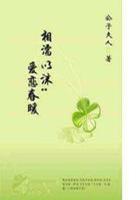They saw what a beautiful town that was for a boy to grow up in, and how many privileges it offered, how many dangers, how many chances for hairbreadth escapes. They chose that Heine must often have rushed shrieking joyfully down that foul alley to the Rhine with other boys; and they easily found a leaf-strewn stretch of the sluggish Dussel, in the Public Garden, where his playmate, the little Wilhelm, lost his life and saved the kitten's. They were not so sure of the avenue through which the poet saw the Emperor Napoleon come riding on his small white horse when he took possession of the Elector's dominions. But if it was that where the statue of the Kaiser Wilhelm I. comes riding on a horse led by two Victories, both poet and hero are avenged there on the accomplished fact. Defeated and humiliated France triumphs in the badness of that foolish denkmal (one of the worst in all denkmal-ridden Germany), and the memory of the singer whom the Hohenzollern family pride forbids honor in his native place, is immortal in its presence.
On the way back to their hotel, March made some reflections upon the open neglect, throughout Germany, of the greatest German lyrist, by which the poet might have profited if he had been present. He contended that it was not altogether an effect of Hohenzollern pride, which could not suffer a joke or two from the arch-humorist; but that Heine had said things of Germany herself which Germans might well have found unpardonable. He concluded that it would not do to be perfectly frank with one's own country. Though, to be sure, there would always be the question whether the Jew-born Heine had even a step-fatherland in the Germany he loved so tenderly and mocked so pitilessly. He had to own that if he were a negro poet he would not feel bound to measure terms in speaking of America, and he would not feel that his fame was in her keeping.
Upon the whole he blamed Heine less than Germany and he accused her of taking a shabby revenge, in trying to forget him; in the heat of his resentment that there should be no record of Heine in the city where he was born, March came near ignoring himself the fact that the poet Freiligrath was also born there. As for the famous Dusseldorf school of painting, which once filled the world with the worst art, he rejoiced that it was now so dead, and he grudged the glance which the beauty of the new Art Academy extorted from him. It is in the French taste, and is so far a monument to the continuance in one sort of that French supremacy, of which in another sort another denkmal celebrates the overthrow. Dusseldorf is not content with the denkmal of the Kaiser on horseback, with the two Victories for grooms; there is a second, which the Marches found when they strolled out again late in the afternoon. It is in the lovely park which lies in the heart of the city, and they felt in its presence the only emotion of sympathy which the many patriotic monuments of Germany awakened in them. It had dignity and repose, which these never had elsewhere; but it was perhaps not so much for the dying warrior and the pitying lion of the sculpture that their hearts were moved as for the gentle and mournful humanity of the inscription, which dropped into equivalent English verse in March's note-book:
Fame was enough for the Victors, and glory and verdurous laurel;
Tears by their mothers wept founded this image of stone.
To this they could forgive the vaunting record, on the reverse, of the German soldiers who died heroes in the war with France, the war with Austria, and even the war with poor little Denmark!
The morning had been bright and warm, and it was just that the afternoon should be dim and cold, with a pale sun looking through a September mist, which seemed to deepen the seclusion and silence of the forest reaches; for the park was really a forest of the German sort, as parks are apt to be in Germany. But it was beautiful, and they strayed through it, and sometimes sat down on the benches in its damp shadows, and said how much seemed to be done in Germany for the people's comfort and pleasure. In what was their own explicitly, as well as what was tacitly theirs, they were not so restricted as we were at home, and especially the children seemed made fondly and lovingly free of all public things. The Marches met troops of them in the forest, as they strolled slowly back by the winding Dussel to the gardened avenue leading to the park, and they found them everywhere gay and joyful. But their elders seemed subdued, and were silent. The strangers heard no sound of laughter in the streets of Dusseldorf, and they saw no smiling except on the part of a very old couple, whose meeting they witnessed and who grinned and cackled at each other like two children as they shook hands. Perhaps they were indeed children of that sad second childhood which one would rather not blossom back into.
In America, life is yet a joke with us, even when it is grotesque and shameful, as it so often is; for we think we can make it right when we choose. But there is no joking in Germany, between the first and second childhoods, unless behind closed doors. Even there, people do not joke above their breath about kings and emperors. If they joke about them in print, they take out their laugh in jail, for the press laws are severely enforced, and the prisons are full of able editors, serious as well as comic. Lese-majesty is a crime that searches sinners out in every walk of life, and it is said that in family jars a husband sometimes has the last word of his wife by accusing her of blaspheming the sovereign, and so having her silenced for three months at least behind penitential bars.
"Think," said March, "how simply I could adjust any differences of opinion between us in Dusseldorf."
"Don't!" his wife implored with a burst of feeling which surprised him.
"I want to go home!"
They had been talking over their day, and planning their journey to Holland for the morrow, when it came to this outburst from her in the last half-hour before bed which they sat prolonging beside their stove.
"What! And not go to Holland? What is to become of my after-cure?"
"Oh, it's too late for that, now. We've used up the month running about, and tiring ourselves to death. I should like to rest a week--to get into my berth on the Norumbia and rest!"
"I guess the September gales would have something to say about that."
"I would risk the September gales."















